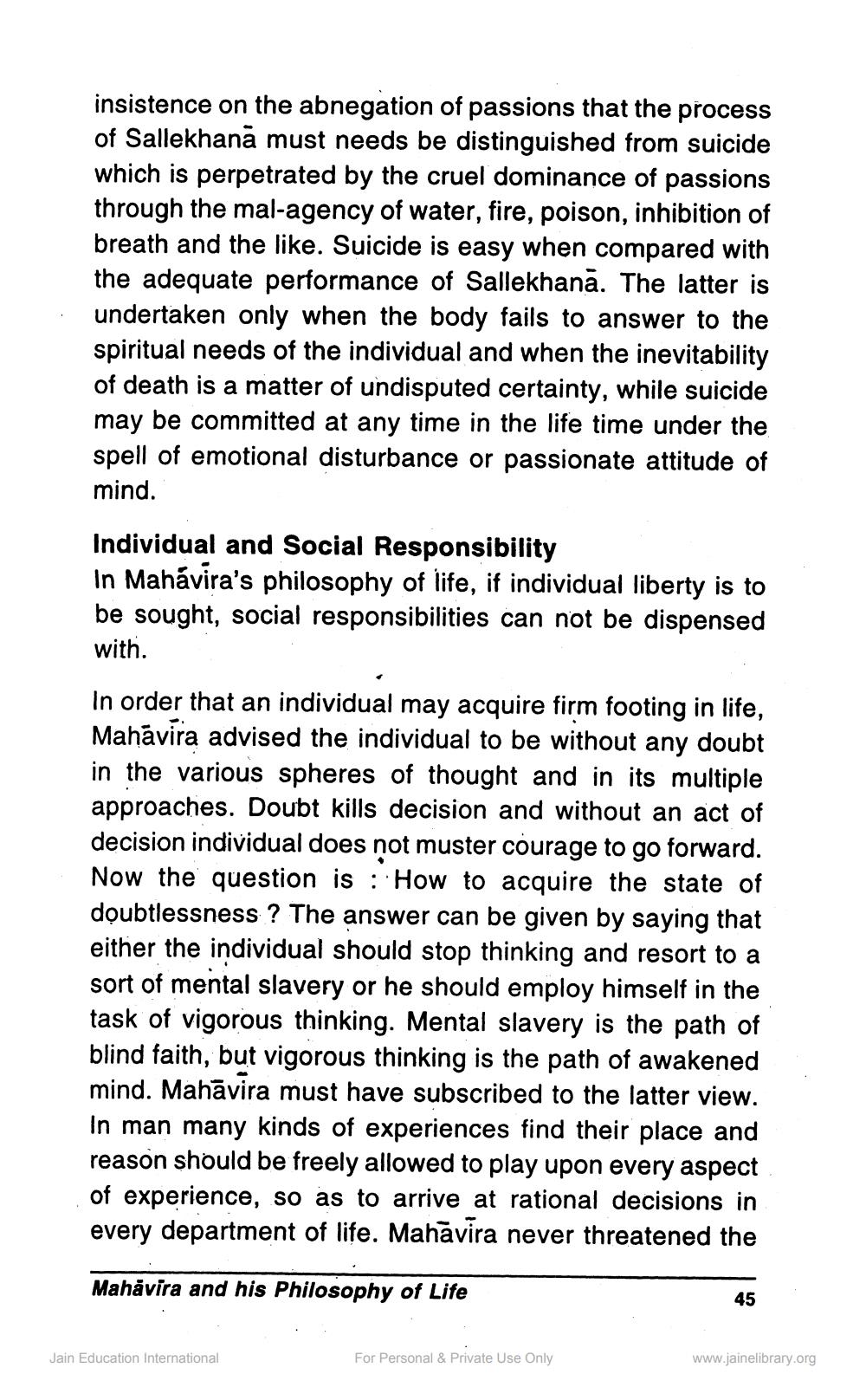________________
insistence on the abnegation of passions that the process of Sallekhana must needs be distinguished from suicide which is perpetrated by the cruel dominance of passions through the mal-agency of water, fire, poison, inhibition of breath and the like. Suicide is easy when compared with the adequate performance of Sallekhana. The latter is undertaken only when the body fails to answer to the spiritual needs of the individual and when the inevitability of death is a matter of undisputed certainty, while suicide may be committed at any time in the life time under the spell of emotional disturbance or passionate attitude of mind.
Individual and Social Responsibility
In Mahavira's philosophy of life, if individual liberty is to be sought, social responsibilities can not be dispensed with.
In order that an individual may acquire firm footing in life, Mahavira advised the individual to be without any doubt in the various spheres of thought and in its multiple approaches. Doubt kills decision and without an act of decision individual does not muster courage to go forward. Now the question is: How to acquire the state of doubtlessness? The answer can be given by saying that either the individual should stop thinking and resort to a sort of mental slavery or he should employ himself in the task of vigorous thinking. Mental slavery is the path of blind faith, but vigorous thinking is the path of awakened mind. Mahāvira must have subscribed to the latter view. In man many kinds of experiences find their place and reason should be freely allowed to play upon every aspect of experience, so as to arrive at rational decisions in every department of life. Mahavira never threatened the
Mahavira and his Philosophy of Life
Jain Education International
For Personal & Private Use Only
45
www.jainelibrary.org




